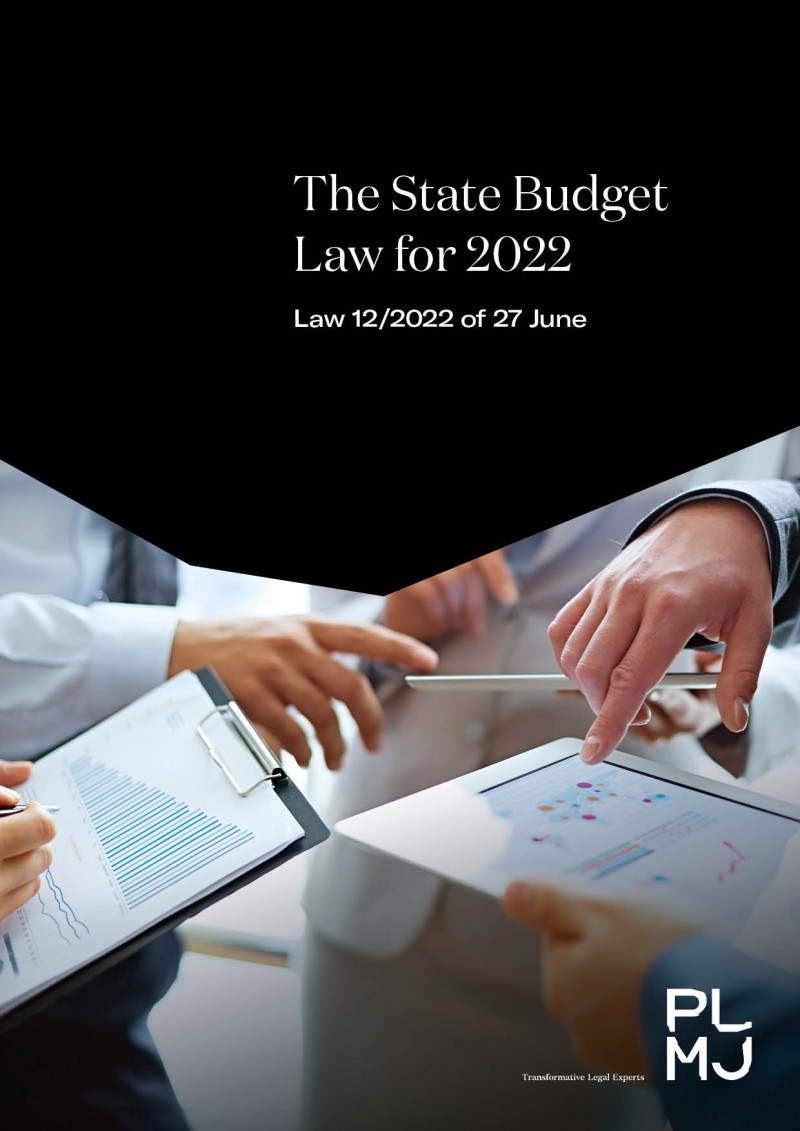-
Services
-
Practice Areas
- Banking and Finance
- Capital Markets
- Corporate M&A
- Dispute Resolution
- Employment and Labour
- EU and Competition Law
- Healthcare, Life Sciences & Pharmaceuticals
- Intellectual Property
- Projects and Energy
- Public Law
- Real Estate and Tourism
- Responsible Business
- Tax
- Technology, Media and Telecommunications
-
Sectors
- Agribusiness
- Banking and financial institutions
- Distribution and retail
- Energy and natural resources
- Government and public sector
- Healthcare, life sciences and pharmaceuticals
- Infrastructure
- Insurance and pension funds
- Manufacturing
- Mobility, transport and logistics
- Real estate and construction
- Social economy
- Sports
- Tourism and leisure
- Desks
- Buzz Legal
-
Practice Areas
-
People
-
Knowledge
-
Newsletter SubscriptionKeep up to date
Subscribe to PLMJ’s newsletters to receive the most up-to-date legal insights and our invitations to exclusive events.
-
-
About Us
-
Apply hereWe invest in talent
We are looking for people who aim to go further and face the future with confidence.
-
- ESG
-
Services
-
Practice Areas
- Banking and Finance
- Capital Markets
- Corporate M&A
- Dispute Resolution
- Employment and Labour
- EU and Competition Law
- Healthcare, Life Sciences & Pharmaceuticals
- Intellectual Property
- Projects and Energy
- Public Law
- Real Estate and Tourism
- Responsible Business
- Tax
- Technology, Media and Telecommunications
-
Sectors
- Agribusiness
- Banking and financial institutions
- Distribution and retail
- Energy and natural resources
- Government and public sector
- Healthcare, life sciences and pharmaceuticals
- Infrastructure
- Insurance and pension funds
- Manufacturing
- Mobility, transport and logistics
- Real estate and construction
- Social economy
- Sports
- Tourism and leisure
- Desks
- Buzz Legal
-
Practice Areas
-
People
-
Knowledge
-
Newsletter SubscriptionKeep up to date
Subscribe to PLMJ’s newsletters to receive the most up-to-date legal insights and our invitations to exclusive events.
-
-
About Us
-
Apply hereWe invest in talent
We are looking for people who aim to go further and face the future with confidence.
-
- ESG
Guide
The State Budget Law for 2022
14/07/2022The State Budget Law for 2022, Law 12/2022 of 27 June (“SBL2022”) was published on 27 June 2022 and came into force on the following day. SBL2022 is framed in a context of expectations for the economic recovery of the country in what is hoped will be a post-pandemic period.
It has been presented as a budget that promotes economic recovery and reinforces policies favourable to investment. However, the greatest changes that have been proposed relate to the taxation of individuals. The proposals for companies are modest, particularly in terms of relief from the tax burden they currently have to bear in their operations. We are therefore seeing a clear choice by the Government to introduce a Budget that is more geared towards families than to businesses.
In relation to individuals, SBL2022 benefits families and young people and the highlights include: (i) splitting the third and sixth Personal Income Tax (Imposto sobre o Rendimento das Pessoas Singulares- IRS) brackets so there will be nine brackets instead of seven; (ii) an increase in the deductions from taxable income relating to dependants; and (iii) an improvement in certain special arrangements including Youth IRS (IRS Jovem) and the Return (Regressar) programme.
However, unlike the increase in family and middle class incomes highlighted by the Government, there will now be compulsory aggregation of certain income, such as the income resulting from capital gains from the sale of shares and other securities acquired less than one year ago and for those earning taxable income in the highest Personal Income Tax bracket. There are no transitional arrangements for investments already made under the law currently in force and
in which the capital gain is realised after 2022 with the need for compulsory aggregation of income. Moreover, fairness and compliance with the principle of legal certainty of a potential increase in taxation may be questioned.
For companies, there a few proposals for changes, but the highlights include: (i) the definitive elimination of the special payment on account for Corporate Income Tax (Imposto sobre o Rendimento de Pessoas Coletivas - “IRC”) - payment of this had already been waived for companies in the case of punctual compliance with certain tax declaration obligations; (ii) the suspension of the increase in autonomous taxation by 10 percentage points in the case of tax losses in 2022 for companies (only for SMEs) which did not have losses in previous periods (iii) the creation of a new Tax Recovery Incentive, which introduces a tax credit to be deducted from Corporate Income Tax (IRC) for investments to be made in 2022, similar to the previous CFEI II; and (iv) the improvement of the tax framework applicable to income from industrial property (the Patent Box).
Finally, in terms of tax procedure and process, there is a total lack of response to the problem of cases pending before the tax courts, in line with the extraordinary measures adopted previously by this Government.
Therefore, similarly to what happened in the State Budget for 2021, there is no significant tax relief for Portuguese families and companies, although the former will benefit more than the latter. There are also no significant measures to attract investment.
PLMJ Tax
Related professionals
Related Knowledge
Draft State Budget Law for 2025
On 10 October 2024, the Government submitted the State Budget Bill for 2025 (Draft Law...
State Budget Law for 2023: Main tax measures
Law 24-D/2022 of 30 December was published to approve the State Budget Law for 2023 (‘SB2023’). It...
State Budget Law Proposal for 2023 Main taxation proposals and other changes
On 10 October, the Government submitted the State Budget Law Proposal for 2023 Parliament Bill ...
